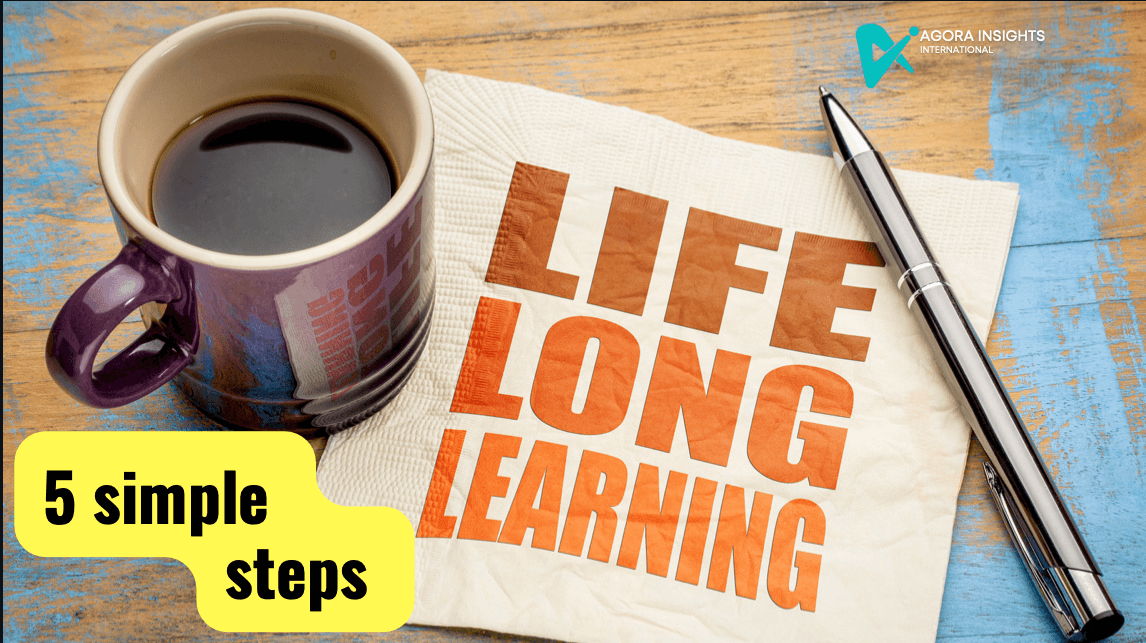Lifelong learning should be prioritised as part of professional development of both business analysts and business architects. You are, after all, essentially knowledge workers and therefore lifelong learners. Staying up to date on the latest trends and developments in your professional field is critical for success, and lifelong learning allows you to do so. Learning new skills and exploring various areas of business transformation, technology, and enhancement can also help you advance your career, feel more motivated, and make valuable contributions to your community and workplace. In this blog, I will discuss why being a lifelong learner is beneficial, how to be a lifelong learner, what your learning style is, the best way to learn new skills, and how to plan your learning. We have a lot to cover, so let's get started!
Why be a lifelong learner?
In this compelling YouTube video by Gitanjali JB, she outlines the benefits to becoming a lifelong learner. These benefits include staying mentally active and agile, increasing your knowledge and skillset, and being able to keep up with the latest trends and changes in your field. Additionally, lifelong learners have the opportunity to make new friends and connections with others who share their same interests. Finally, Gitanjali JB argues that being a lifelong learner is a way of life that leads to a more fulfilling and enriching existence.
The benefits of lifelong learning are:
- You can keep your mind active and engaged.
- You can learn new things and skills.
- You can stay ahead of changes in your industry or field.
- You can network with other professionals.
- You can improve your career prospects.
How would you become a lifelong learner?

1. Make a commitment to lifelong learning.
The best way to ensure that you continue to learn and grow is to make a commitment to lifelong learning. This means setting aside time each day, week, or month to focus on your professional development. It may be challenging at first, but with a little discipline and organisation, it can be done.
2. Create a learning plan.
A learning plan can assist you in remaining focused and motivated as you pursue your professional development objectives. It can also assist you in tracking your progress and ensuring that you cover all of the necessary topics and skills. Begin by listing the areas of learning you want to cover in your learning plan. Because the world is constantly changing, business analysts and architects must be lifelong learners. Look for new trends and technology in your search. Once you have an idea, set specific goals for each area and create a timeline to complete them.
3. Take advantage of online resources.
There are many great online resources available for continuing education and professional growth. These include websites, blogs, podcasts, and even social media groups. By taking advantage of these resources, you can learn new skills and stay up-to-date on the latest trends in your field.
4. Join a professional association.
Professional associations can be an excellent source of continuing education and professional growth opportunities. They often offer webinars, conferences, and other events that allow members to learn from experts in their field. They also provide access to valuable resources such as job boards, networking opportunities, and research papers.
5. Be willing to experiment.
It's important to be willing to experiment with different methods of learning and professional development. What works for one person may not work for another, so it's important to try out different approaches until you find what works best for you personally and professionally
What's the best way to learn new skills?

In this video, Tim Ferris explains how to master any skill you want within 6-12 months. Sounds Crazy? Well here is a guided method by The author of 4-hour workweek.
The DiSSS method
- Di- Deconstruction
- S - Selection
- S - Sequencing
- S - Stakes
There is no one-size-fits-all way to learn because the best way to learn a new skill depends on the person and the skill. However, some general tips on how to learn new skills effectively include:
- Finding a good teacher or mentor: This is essential for learning complex skills, as a good teacher can provide you with all the necessary information and support.
- Practicing regularly: This is key for improving any skill, as it allows you to make steady progress over time.
- Setting achievable goals: It’s important to set goals that are challenging yet achievable, as this will help you stay motivated and focused on your learning.
- Focusing on your strengths: It’s helpful to focus on your strengths when learning a new skill, as this will allow you to progress more quickly.
What's your favorite learning method?

There are a variety of learning methods that can be used to improve knowledge and skills. Some of the most common include:
- Reading: This is a simple and effective way to learn, as it allows you to take in information gradually and at your own pace.
- Watching videos: This is a great way to learn new concepts or procedures, as you can see them demonstrated step-by-step.
- Practicing: This is essential for improving skills, as it allows you to apply what you have learned in a safe and controlled environment.
- Taking courses: If you want to learn in a more structured and comprehensive way, then taking courses may be the best option for you.
- Seeking help: If you are struggling with a certain concept or task, then seeking help from others can be an effective way to learn.
What are your learning plans this year? Happy Learning everyone
Conclusion
Lifelong learning is essential because it allows us to constantly grow and improve ourselves professionally and personally. It helps us stay current with new trends and developments in our field, and it gives us the opportunity to explore new areas of business analysis. By continuing to learn throughout our lives, we can achieve our full potential and make valuable contributions to our workplaces and communities.
Post sponsored by Agora Insights Ltd

Post a Comment